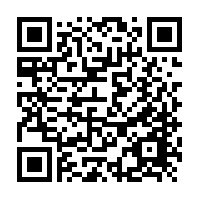Sometimes we simply take things for granted. We don’t second guess or ask follow-up questions. After all, it’s so obvious when things are obvious.
But the question is: “How Do You Know What You Think You Know?”
Listen
Glossary
- notorious – famous or well known, typically for some bad quality or deed
- epistemology – the theory of knowledge, esp. with regard to its methods, validity, and scope. Epistemology is the investigation of what distinguishes justified belief from opinion.
- fudge – adjust or manipulate (facts or figures) so as to present a desired picture
- conjecture – form an opinion or supposition about (something) on the basis of incomplete information
- heuristic – enabling a person to discover or learn something for themselves
- pre-empt – take action in order to prevent (an anticipated event) from happening
Think about it
Answer the questions below.
- In what two ways can Nietzsche’s assertion be understood?
- What conditions are necessary for one’s belief to count as knowledge according to the “knowledge is justified true belief” principle.
- How does the author explain what can and what cannot count as justification?
- How does the author defend himself against the argument the he is stating the obvious?
Practice makes perfect
Fill in the blank spaces with the expressions in bold.
false claims – wheat from chaff – admission of ignorance – an indication of intellectual honesty
In my last post, I argued that an ________ — saying, “I don’t know” — is ________. But obviously many people do know some things, and a few people know many things. The challenge here is sorting ________: How can you tell when they really do know something and aren’t just making ________?
Fill in the blank spaces with the correct forms of the words in capitals.
If Mark’s ________ JUST for his belief is that Steve is a jerk and he looks strange, then it seems to me that he’s not warranted in asserting that he knows that Steve is fudging his numbers — even if Steve is indeed fudging his numbers. Mark is free to speculate, conjecture, ________ HYPOTHESIS and so on that Steve is up to no good; but he can’t ________ LEGITIMATE claim to know that he is. Similarly, an _______ ECONOMY who predicted a downturn for the wrong reasons cannot claim to have known that a downturn was coming. And an HR head who predicted that an ________ APPLY would do well can not claim to have known that he would do well, if she believed he was a good hire because he had the same birthday as her son.
Explore it more
(697)
Podcast: Play in new window | Download





